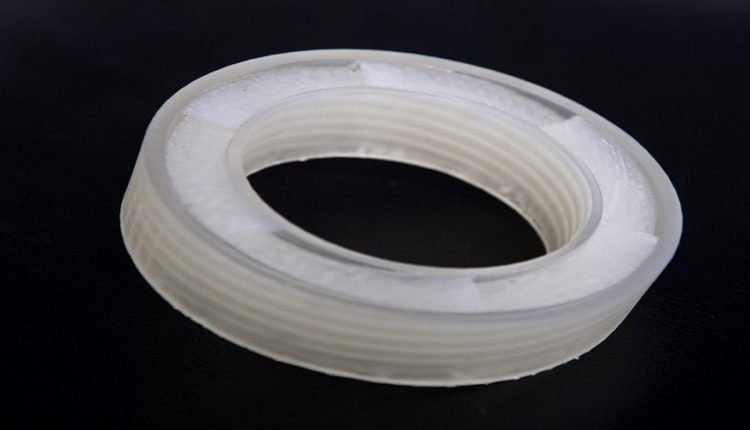
Today’s soundproofing techniques typically involve thick, heavy walls and chemically treated materials. But a new ring-like structure has been shown to silence noise while maintaining airflow.
Developed by Boston University researchers Xin Zhang, a professor at the College of Engineering, and Reza Ghaffarivardavagh, a Ph.D. student in the Department of Mechanical Engineering, the open, ring-like structure, created to mathematically perfect specifications, was shown to reduce 94% of the sound from a loudspeaker, rendering the sound imperceptible to human hearing.
Ghaffarivardavagh and Zhang calculated the dimensions and specifications that the metamaterial would need to have in order to interfere with the transmitted sound waves, preventing sound—but not air—from being radiated through the open structure. They discovered the metamaterial needs to be shaped to send incoming sounds back to their source.
As a test case, they created a structure that could silence sound from a loudspeaker. They used 3-D printing to materialize an open, noise-canceling structure made of plastic.
Trying it out in the lab, the researchers sealed the loudspeaker into one end of a PVC pipe. On the other end, the tailor-made acoustic metamaterial was fastened into the opening. Even when the audio source was turned on, the researchers couldn’t hear the irritatingly high-pitched note emanating from the speaker. Peering into the PVC pipe, though, they could see the loudspeaker’s subwoofers thrumming away.
The metamaterial, ringing around the internal perimeter of the pipe’s mouth, worked like a mute button until the moment when Ghaffarivardavagh reached down and pulled it free. The lab suddenly echoed with the screeching of the loudspeaker’s tune.
The researchers are exploring possible applications for the technology, including creating quieter drones or silencing the loud hum of an MRI machine.
Learn more in the video below.
Story via Boston University.
